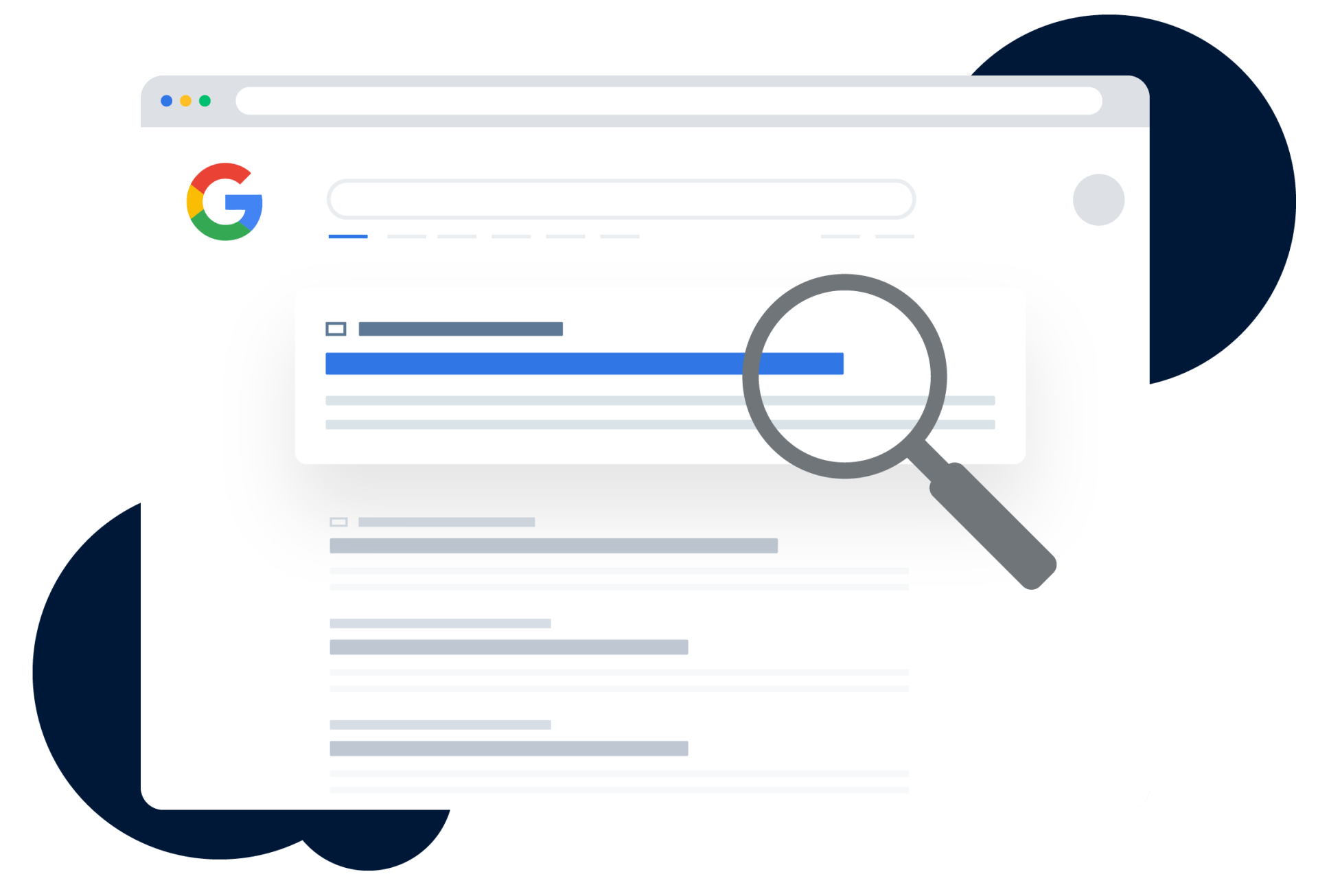From A to Z: The Complete SEO Services List
SEO services list is essential to understanding the full spectrum of strategies available to boost your website's visibility. Here's a quick overview of the main types of SEO services:
- On-Page SEO: Refers to optimizing elements directly on your website, such as keywords and meta tags.
- Off-Page SEO: Focuses on building quality backlinks and strengthening your website’s authority.
- Technical SEO: Involves improving website speed, mobile-friendliness, and site structure.
- Local SEO: Optimises your online presence to attract local customers.
- Ecommerce SEO: Ensures product listings are visible and compelling for potential buyers.
Search engines like Google are the go-to for consumers seeking information, making SEO pivotal to any digital marketing strategy. Mastering SEO helps businesses climb to the top of search engine results, driving more organic traffic to their site. As the digital landscape evolves, integrating comprehensive SEO services into your marketing strategy will improve your online presence and help maintain your competitive edge.
I'm Kerry Anderson, a digital marketing strategist and co-founder of RankingCo, with over 15 years of experience in navigating the intricacies of the seo services list. My expertise in SEO, Google Ads, and data analytics has helped propel numerous businesses forward.
Core SEO Services
Understanding the core SEO services is like having a roadmap to online visibility. These services are crucial for enhancing your website's performance and ensuring it stands out in the crowded digital space. Let's explore the essentials: on-page SEO, off-page SEO, and technical SEO.
On-Page SEO
On-page SEO is all about optimising elements within your website. Think of it as setting the stage for your content to shine. This involves:
- Keyword Research: Finding the words and phrases your target audience is searching for. It's the cornerstone of your SEO strategy. For instance, a thorough keyword analysis can uncover opportunities you might have missed, helping you rank higher in search results.
- Meta Tags and Descriptions: These are snippets of text that describe your page's content. Well-crafted meta tags can entice users to click on your link over others. It's like the blurb on the back of a book—critical for grabbing attention.
- Content Optimisation: Ensuring your content is relevant, informative, and engaging. This means incorporating keywords naturally, using headings and subheadings, and maintaining a clear structure. Quality content not only attracts visitors but keeps them coming back.
Off-Page SEO
While on-page SEO focuses on your website, off-page SEO is about building your site's reputation across the web. It's like networking for your website, ensuring it gets noticed in the right circles. Key components include:
- Link Building: Acquiring high-quality backlinks from reputable sites. Imagine your website as a party—each backlink is an invitation for others to join. The more credible the source, the better the party!
- Social Mentions: Monitoring how often your brand is mentioned on social media. Engaged followers are more likely to share your content, spreading your message far and wide.
- Guest Posting: Writing articles for other websites to gain exposure and backlinks. It's a win-win, offering value to another site while boosting your own authority.
Technical SEO
Technical SEO ensures that search engines can easily crawl and index your site. It's like the engine under the hood of a car—essential for smooth operation. Focus areas include:
- Site Speed: Fast-loading pages are crucial. Research shows that a delay of just a few seconds can increase bounce rates significantly. Tools like Google’s PageSpeed Insights can help you identify areas for improvement.
- Mobile Optimisation: With more users browsing on their phones, mobile-friendliness is non-negotiable. A responsive design ensures your site looks great on any device.
- Crawlability and Indexing: Make sure search engines can find and understand your content. This involves using sitemaps, robots.txt files, and structured data.
Each of these core SEO services plays a vital role in your overall strategy. By mastering them, you lay a solid foundation for your website's success.
Next, we'll explore Local SEO, focusing on how to attract customers in your area and dominate local search results.
On-Page SEO
On-page SEO is the art and science of making every part of your website work better for search engines and users. It's like fine-tuning an instrument to produce the best sound. Let's break down the key elements:
Keyword Research
Keyword Research is the backbone of any successful SEO strategy. It involves finding the exact words and phrases your potential customers use when searching online. By understanding these terms, you can tailor your content to meet their needs.
For example, if you're running a bookstore in Brisbane, identifying keywords like "best books 2023" or "bookstores in Brisbane" can help you attract local readers. Use tools like Google's Keyword Planner to find these opportunities.
Meta Tags and Descriptions
Meta Tags and Descriptions are like the cover and blurb of your website pages. They tell search engines and users what to expect. A compelling meta description can increase your click-through rate, leading to more visitors.
Think of it this way: a well-written meta tag is your first impression. Make it count by including primary keywords and a clear call-to-action. For instance, "Explore our wide range of books in Brisbane – find your next read today!"
Content Optimisation
Content Optimisation ensures your website's content is both engaging and SEO-friendly. It's about balancing quality with strategy. Here's how to get it right:
- Relevance and Engagement: Your content should answer the questions your audience is asking. Use headings, bullet points, and images to make it easy to read. Engaging content keeps visitors on your site longer.
- Keyword Integration: Naturally incorporate keywords into your content. Avoid stuffing, which can harm readability and SEO performance. Aim for a seamless flow.
- Structure and Format: Use headings and subheadings to break up text. This not only improves readability but also helps search engines understand your content better.
- Regular Updates: Keep your content fresh by updating it regularly. This signals to search engines that your site is active and relevant.
By mastering these on-page SEO techniques, you can significantly boost your website's visibility and user engagement. The goal is to create a seamless experience for both search engines and users.
Next, we'll dig into Off-Page SEO, where we'll explore how to build your site's credibility and reputation beyond its pages.
Off-Page SEO
Off-page SEO is all about building your website's credibility and reputation outside of its own pages. Think of it as your website's social life—how it interacts with the wider web. Let's explore the essentials:
Link Building
Link Building is the backbone of off-page SEO. It's like getting votes of confidence from other websites. When reputable sites link to yours, it tells search engines that your content is valuable and trustworthy.
Consider this: getting a backlink from a high-authority site like Forbes can boost your own site's authority significantly. It’s similar to being recommended by a well-known expert in your field. Focus on acquiring quality links from relevant sources rather than sheer quantity.
Tip: Aim for links from sites within your industry. For example, if you’re in the marketing sector, links from other marketing sites will carry more weight than those from unrelated fields.
Social Mentions
Social Mentions are the shoutouts your website gets on social media platforms. While they might not directly impact your search rankings, they can drive traffic and increase your visibility.
Imagine your content being shared on Twitter or Facebook—it can lead to more people visiting your site and potentially linking to it. Engage with your audience and encourage them to share your content. The more your content is shared, the more likely it is to reach new audiences and gain backlinks.
Tip: Use social listening tools to track mentions of your brand and content. This can help you understand what resonates with your audience and identify opportunities for engagement.
Guest Posting
Guest Posting is like being a guest speaker at someone else's event. You write content for another site, and in return, you usually get a backlink to your own site. It's a win-win: you gain exposure to a new audience, and the host site gets valuable content.
When guest posting, target sites that are reputable and relevant to your industry. This not only helps with link building but also positions you as an authority in your field.
Tip: Personalize your outreach when pitching guest posts. Show the site owner that you understand their audience and can provide valuable content.
By mastering these off-page SEO strategies, you can improve your website's authority and reach. The goal is to build relationships and trust with both users and search engines.
Next, we'll explore Technical SEO, where we ensure your site is running smoothly behind the scenes.
Technical SEO
Technical SEO is like the engine of a car—it's all about making sure everything under the hood is running smoothly. When your website is technically sound, search engines can easily crawl and index your pages. Let's break down the key elements of technical SEO:
Site Speed
Site Speed is crucial. Imagine waiting ages for a webpage to load. Frustrating, right? Google feels the same way. Fast-loading sites tend to rank higher because they offer a better user experience.
In fact, Google’s PageSpeed Insights can help you check how quickly your pages load. Aim for a load time of under 2 seconds. To speed things up, compress images, reduce server response times, and use browser caching. A faster site not only pleases visitors but also search engines.
Tip: Use tools like GTmetrix or Pingdom to get detailed insights on your site's speed and find areas for improvement.
Mobile Optimisation
Mobile Optimisation is no longer optional. With over 63% of website visits coming from smartphones, your site must be mobile-friendly. Google uses mobile-first indexing, meaning it looks at the mobile version of your site first.
Ensure your site is responsive, meaning it adjusts to different screen sizes. Test your site on various devices to see how it looks and functions. A seamless mobile experience can lead to higher rankings and happier users.
Tip: Use Google’s Mobile-Friendly Test tool to see how your site performs on mobile devices.
Crawlability
Crawlability refers to how easily search engines can access and understand your website. If search engines can't crawl your site, they can't index it, which means it won't show up in search results.
Ensure your site is free from broken links and unnecessary redirects. Use a clean URL structure and provide an XML sitemap to guide search engines through your site. Tools like Google Search Console can help you monitor crawl errors and fix them promptly.
Tip: Regularly check your robots.txt file to ensure it’s not blocking important pages from being crawled.
By focusing on these technical SEO aspects, you ensure that your site is not only visible to search engines but also provides a great user experience. Next, we'll dive into Local SEO to see how you can boost your presence in local search results.
Local SEO
Local SEO is all about making sure your business shines in local searches. If you have a brick-and-mortar store or offer services in a specific area, this is crucial. Let’s explore the components that make up effective local SEO.
Google My Business
Google My Business (GMB) is your business's digital storefront. It's a free tool that allows you to manage how your business appears on Google Search and Maps. Setting up a GMB profile is essential for local SEO success.
Make sure your GMB listing is complete and accurate. Include your business name, address, phone number, website, and hours of operation. Upload high-quality photos to give potential customers a feel for your business.
Tip: Regularly update your GMB profile with posts about offers, events, or news to engage with customers and keep your listing fresh.
Local Packs
Local Packs are the block of three business listings that appear at the top of Google search results when someone searches for local services. These are highly visible and can drive a lot of traffic to your business.
To get featured in a local pack, ensure your GMB profile is optimised and gather plenty of positive reviews. Consistency is key—your business information should match across all online platforms.
Tip: Encourage satisfied customers to leave reviews on your GMB page, as these can boost your local pack rankings.
Citation Building
Citation Building involves listing your business on various online directories. These citations help search engines validate your business's existence and trustworthiness.
Ensure your NAP (Name, Address, Phone number) is consistent across all citations. This consistency reinforces your business's legitimacy to search engines and can improve your local search rankings.
Tip: Use tools like Moz Local or Yext to manage your citations efficiently and ensure accuracy across multiple platforms.
By focusing on these local SEO strategies, you can improve your visibility in local searches and attract more customers from your community. Next, we’ll explore Ecommerce SEO to help you optimise your online store for better search performance.
Ecommerce SEO
Ecommerce SEO is your ticket to boosting online sales by making your products easy to find. Let's explore how you can optimize your product listings, use keywords effectively, and increase conversion rates.
Product Listings
Your product listings are the backbone of your ecommerce site. Each listing should be unique and detailed. Include high-quality images, clear product descriptions, and relevant specifications. This not only helps potential buyers but also improves your visibility in search engines.
Tip: Use bullet points for key features to make information easy to digest.
Keyword Optimisation
Keywords are crucial for ensuring your products appear in search results. Focus on long-tail keywords—these are specific phrases that buyers might use when they're ready to purchase. For example, instead of just "running shoes," use "women's waterproof running shoes."
Tip: Use tools like Google's Keyword Planner to find effective keywords with high buyer intent.
Conversion Rate
Getting traffic is great, but converting visitors into customers is the goal. Make sure your site is user-friendly and loads quickly. A smooth checkout process is essential. Minimize the steps required to purchase, and offer multiple payment options.
Tip: Use A/B testing to find the most effective layouts and calls to action on your product pages.
By focusing on these ecommerce SEO strategies, you can improve your online store's visibility and turn visitors into loyal customers. Next, we'll dig into Advanced SEO Techniques to explore the future of search optimization.
Advanced SEO Techniques
As technology evolves, so does the way we optimize for search engines. Let's explore some advanced SEO techniques that can give your website an edge: voice search, AI search, and schema markup.
Voice Search
With the rise of smart speakers and voice assistants like Alexa and Siri, voice search is becoming a big deal. People speak differently than they type, often using more natural language and longer queries.
Tip: Optimize your content for voice search by focusing on conversational keywords and phrases. Think about the questions your audience might ask and provide clear, concise answers.
AI Search
Artificial Intelligence (AI) is changing how search engines understand and rank content. Google's AI, known as RankBrain, helps process search queries and determine the most relevant results.
Tip: To rank well with AI-driven search engines, create high-quality, engaging content that answers user questions. Use structured data to help AI understand your content better.
Schema Markup
Schema markup is a type of microdata that helps search engines understand your content. It can improve your site's visibility by enabling rich snippets—extra bits of information like ratings, prices, or event dates that appear in search results.
Tip: Use schema markup to highlight important information on your pages. This could include business hours, reviews, or product details. You can use Google's Structured Data Markup Helper to get started.
By incorporating these advanced techniques, you can stay ahead of the curve and ensure your website is optimized for the latest search technologies. Next, we'll look at the tools and analytics that can help you track your SEO performance.
SEO Tools and Analytics
To effectively manage your SEO strategy, you need the right tools and analytics. Let's explore some essential components: Google Analytics, SEO audits, and reporting.
Google Analytics
Google Analytics is a powerful tool that provides detailed insights into your website's performance. It's like having a backstage pass to see how visitors interact with your site. With Google Analytics, you can track:
- Visitor numbers: See how many people visit your site and which pages they frequent.
- Traffic sources: Find whether visitors find you through search engines, social media, or direct visits.
- User behaviour: Understand what users do on your site, including how long they stay and what they click.
These insights help you make informed decisions to improve your site's performance and user experience. By understanding what's working and what isn't, you can tailor your content and marketing strategies effectively.
SEO Audit
An SEO audit is like a health check-up for your website. It evaluates how well your site is optimized for search engines. This process involves:
- Crawlability: Ensuring search engines can easily access and index your pages.
- Site speed: Checking if your site loads quickly, as slow sites can hurt rankings.
- Mobile optimisation: Ensuring your site works well on mobile devices, given the rise of mobile browsing.
Conducting regular SEO audits helps identify areas for improvement and keeps your site in top shape for search engine rankings.
Reporting
SEO reporting is crucial for tracking the success of your SEO efforts over time. Reports typically include:
- Keyword rankings: Monitor where your site stands for your target keywords.
- Traffic trends: Observe changes in website traffic and understand seasonal impacts.
- Conversion rates: Measure the effectiveness of your site in turning visitors into customers.
Using tools like Google Analytics and SEO audits, you can compile comprehensive reports that offer a clear snapshot of your SEO performance. These reports are invaluable for adjusting strategies and demonstrating value to stakeholders.
By leveraging these tools and analytics, you can effectively monitor and improve your SEO strategy, ensuring your website continues to perform well in search engine rankings. Next, we'll address some frequently asked questions about the SEO services list.
Frequently Asked Questions about SEO Services List
What does an SEO service include?
SEO services are like having a roadmap to make your website shine on search engines. They typically include:
- SEO audit: Think of it as a health check for your site. It identifies what's working and what needs fixing.
- Custom strategy: Custom plans based on your business goals and competition.
- Keyword research: Finding the right words that people use to search for your products or services.
- Google Search Console setup: Ensures your site is visible to Google and tracks its performance.
- Regular reporting: Keeps you updated on how your site is performing and where improvements can be made.
These services are designed to improve your site's visibility, bring in more visitors, and ultimately, boost your business.
How much do SEO services cost?
The cost of SEO services can vary widely, depending on several factors:
- Monthly retainer: Typically ranges from $2,500 to $7,500.
- Hourly rate: Usually between $50 and $100.
- Project-based: Costs can range from $1,000 to $5,000 per project.
Factors influencing these prices include the agency's experience, location, and the complexity of your SEO needs. It's essential to choose a provider that aligns with your budget and goals.
Do SEO services work?
Absolutely! SEO services are effective in boosting your website's visibility and attracting quality traffic. But success hinges on a few key aspects:
- Clear goals: Know what you want to achieve with your SEO efforts.
- Adaptability: Be ready to tweak your strategy based on performance data.
- Reputable partner: Choose an SEO provider with a proven track record.
With the right approach, SEO can significantly improve your online presence and drive business growth. It's a long-term investment that pays off over time.
Conclusion
At RankingCo, we understand that SEO is not just about getting to the top of search results—it's about staying there and ensuring your business thrives online. Our comprehensive SEO services list is designed to cater to businesses of all sizes, with a special focus on helping small businesses dominate their local search markets.
SEO brings a wealth of benefits:
- Increased Visibility: By optimizing your website, we help it appear prominently on search engines, making it easier for potential customers to find you.
- Quality Traffic: Our targeted strategies ensure that the traffic you receive is not just high in volume but also high in quality, leading to better customer engagement.
- Improved Credibility: Appearing at the top of search results builds trust and credibility with your audience, positioning your brand as a leader in your industry.
Our digital strategy is powered by advanced AI technologies, allowing us to stay ahead of digital trends and deliver results that matter. We create custom campaigns that are not only effective but also sustainable, ensuring long-term success for our clients.
Partnering with us means having a dedicated team committed to your growth. We don't just follow industry standards; we set them. Our continuous learning and adaptation ensure that your business is always a step ahead in the changing digital landscape.
Ready to take your business to the next level? Explore our SEO services and see how we can help you achieve your digital marketing goals. Let's make your website a magnet for the right audience, together.




 Rating
Rating
Either by phone for the adventurous or email for the more bashful. If you are pressed for time fill in this quick form and we'll get back to you.
Contact Us
We will get back to you as soon as possible.
Please try again later.
All Rights Reserved | RankingCo | Smart Digital Marketing










